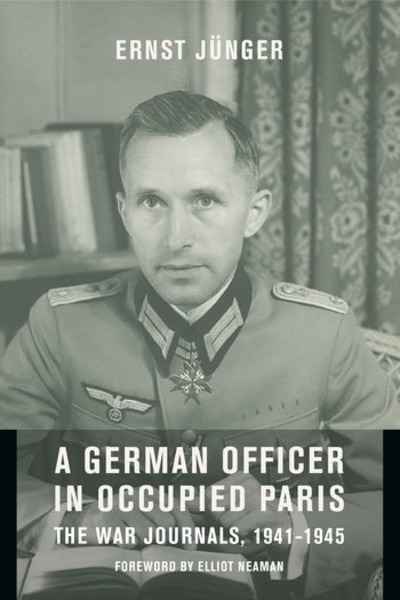A german officer in occupied Paris
The War Journals, 1941-1945

Editorial Columbia
Fecha de edición enero 2019 · Edición nº 1
Idioma inglés
EAN 9780231127400
496 páginas
Libro
encuadernado en tapa dura
Dimensiones 156 mm x 235 mm
Resumen del libro
Ernst Jünger was one of twentieth-century Germany's most important and most controversial writers. Decorated for bravery in World War I and the author of the acclaimed memoir from the western front, Storm of Steel, he frankly depicted the war's horrors even as he extolled its glories. As a Wehrmacht captain during the Second World War, Jünger faithfully kept a journal in occupied Paris and continued to write on the eastern front and in Germany until its defeat writings that are of major historical and literary significance.
Jünger's Paris journals document his Francophile excitement, romantic affairs, and fascination with botany and entomology, alongside mystical and religious ruminations and trenchant observations on the occupation and the politics of collaboration. Working as a mail censor, he led the privileged life of an officer, encountering artists such as Céline, Cocteau, Braque, and Picasso. His notes from the Caucasus depict chaos and misery after the defeat at Stalingrad, as well as candid comments about the atrocities on the eastern front. Returning to Paris, Jünger observed resistance and was peripherally involved in the 1944 conspiracy to assassinate Hitler. After fleeing France, he reunited with his family as Germany's capitulation approached. Both participant and commentator, close to the horrors of history but often hovering above them, Jünger turned his life and experiences into a work of art. These wartime journals appear here in English for the first time, giving us fresh insight into the quandaries of the twentieth century from the keen pen of a paradoxical observer.
Biografía del autor
Ernst Jünger nació en Heidelberg en 1895 y murió en 1998. Incorporado como voluntario en la primera guerra mundial, fue herido varias veces y condecorado. En 1923 inició estudios de zoología y filosofía en la Universidad de Leipzig y, más tarde, se trasladó a Berlín, donde empezó a consolidar su carrera como escritor. En 1941 entró a formar parte del alto mando alemán en París, aunque un año después el régimen nazi prohibió la publicación de sus obras. Los diarios contenidos en Radiaciones I y II reflejan magistralmente la experiencia de esos difíciles años. Finalizada la guerra, Jünger combinó las estancias en la pequeña localidad suaba de Wilflingen con viajes por medio mundo y con la redacción de un conjunto de novelas, ensayos y diarios que le han convertido en uno de los testigos más lúcidos, apasionantes y controvertidos de nuestra época.








